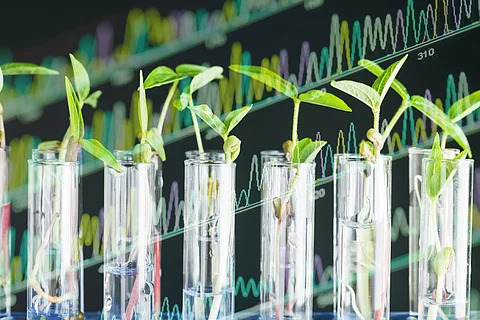

The battle over genetic data stored digitally kicks off in Montreal August 12, 2024. The crucial 5-day meeting will decide how benefits earned from the use of digital sequence information (DSI) will be shared with the custodians of biodiversity.
This is the second meeting of the Ad Hoc Open-ended Working Group on Benefit-sharing from the Use of Digital Sequence Information on Genetic Resources, established at the 15th Conference of Parties (COP15) for Convention on Biological Diversity (CBD) in 2022. The group is tasked with reaching an agreement on a multilateral mechanism for sharing benefits from the use of digital sequences.
This could be difficult as DSI is mired in controversy.
Digital sequence information refers to digital versions of plant, animal, and microorganism genetic material that can be used instead of the actual organism. Instead of accessing the organism, industry can simply obtain the sequence from global databases. The CBD states that users must ensure that the benefits of profits earned from biodiversity are shared equitably with communities.
Drugs, cosmetics and agricultural biotechnology industries that depend most on DSI generate anywhere from one to a few trillion dollars annually and just 0.1 per cent of $1 trillion would yield 1 billion for the global fund. According to the United Nations documents released July 1, 2024, even a small percentage of revenue would be worth billions of dollars.
Benefit sharing — the third pillar of the CBD — has not worked well, despite special efforts to ensure community benefit. To ensure that it is implemented, Nagoya Protocol was put in place and came into force in October 2014. Because DSIs were widely used, they were first discussed at COP13 in 2016 and are now included in Goal C and Target 13 of the Biodiversity Plan.
While a final decision on this subject is likely only at COP16 in Colombia to be held October 21 to November 1, 2024, the discussions in Montreal will create the final document for negotiations in October. The talks in Montreal will address critical operational details: Who pays, how much, and under what conditions and how to ensure transparency and inclusivity in decision-making.
“The multilateral mechanism is a game changer. It is expected to provide a multilateral solution and policy guidance on benefit-sharing from the use of DSI on genetic resources, address the crucial aspects of equity, fairness and social justice, bolster capacity-building and development and technology transfer, and mobilise new streams of biodiversity finance,” said Astrid Schomaker, executive secretary of the CBD.
Civil society and experts, however, are not so sure and have raised multiple concerns about the existing proposals.
For example, DSI is currently shared through public databases that were established prior to the adoption of CBD in 1992 and are not accountable to CBD or the Parties. Some European countries, as well as Japan and the United States, have sponsored the databases. Of concern is the fact that the US is not a party to the CBD or the Nagoya Protocol, and thus is not required to follow the rules established by these agreements.
It is also of concern that these databases do not verify that the DSI received was legitimately obtained with the permission of the country of origin. Anyone can access it anonymously, making it impossible to determine who needs to be approached for benefits.
Benefit sharing has yet to be made obligatory or legally binding under the multilateral mechanism.
The civil society has sent a letter to the Working Group's co-chairs, the CBD's executive secretary, and the delegations attending the meeting, requesting that these issues be resolved. The letter has been signed by 65 members of civil society.
The main points of their demand are that Parties establish an accountable DSI database and ensure fair and equitable benefit distribution. Such a database can serve as the central repository for DSI for the CBD multilateral mechanism as well as an interim National Database for developing countries that lack national capacities, allowing them to share DSI with users and directly collect benefits, the experts point out in the letter.
This database should mandate registration of users and these users should also agree not to share DSI with unregistered users. This would ensure that users are obliged to share benefits, the letter added.
Aside from DSI, the meeting will most likely address the issue of its compatibility with open source data. The group would also decide who should serve on the governing body's board. While developed countries compete for board seats for the private sector, other countries want to see indigenous peoples and local communities represented well.
The decision on DSI is being equated with the adoption of the Biodiversity Plan. Even developing countries would prefer a final decision on the subject to be made at COP16 at Colombia, as a multilateral fund, would ensure that at least some benefits are shared.
The decision on DSI would also guide discussions about similar multilateral funds being considered by the Food and Agriculture Organization under its International Treaty on Plant Genetic Resources for Food and Agriculture, as well as the World Health Organization’s Pandemic Treaty.